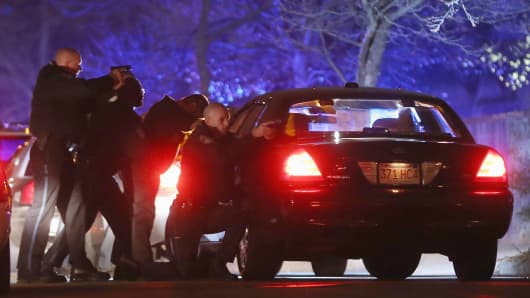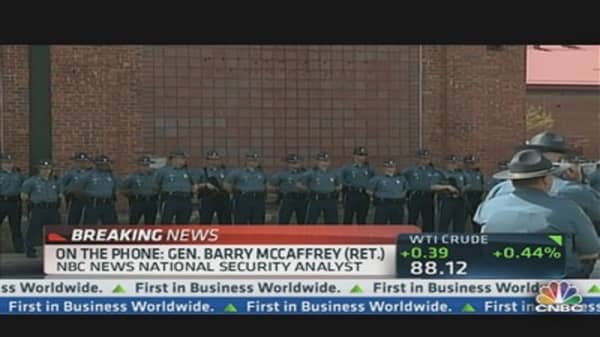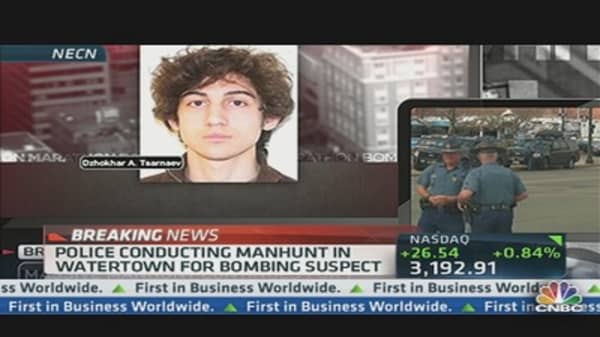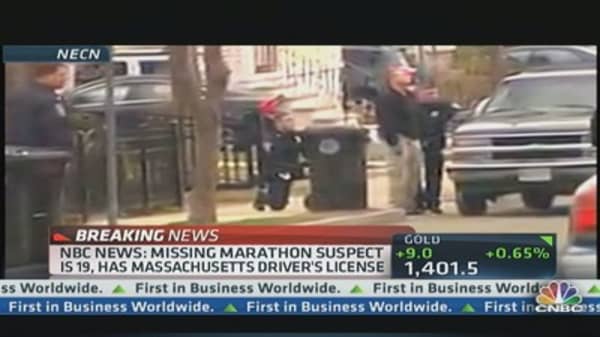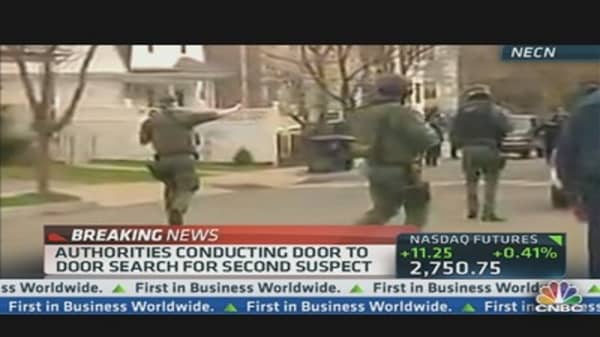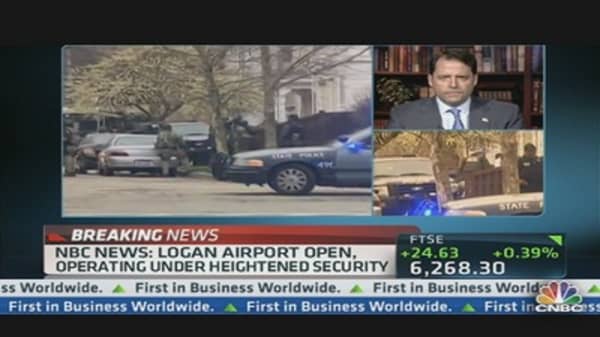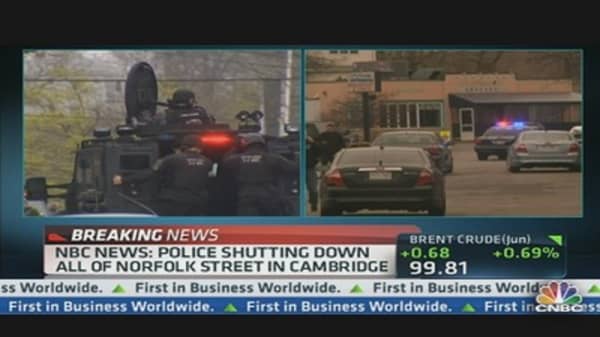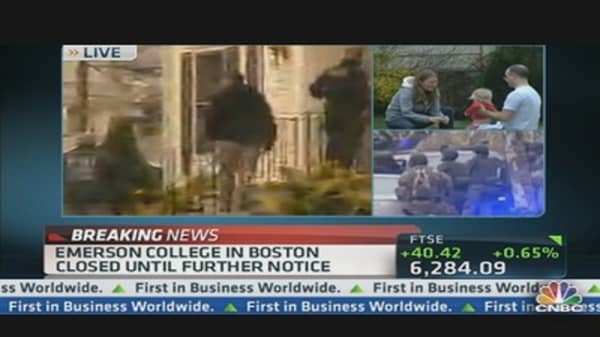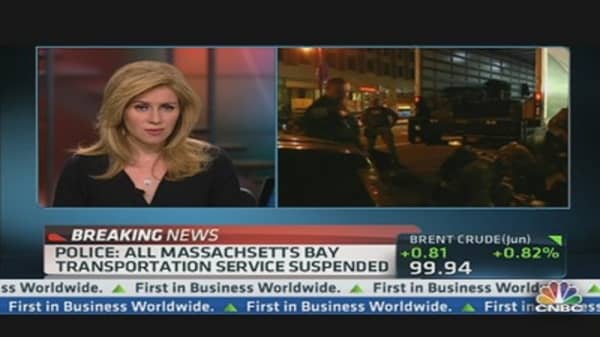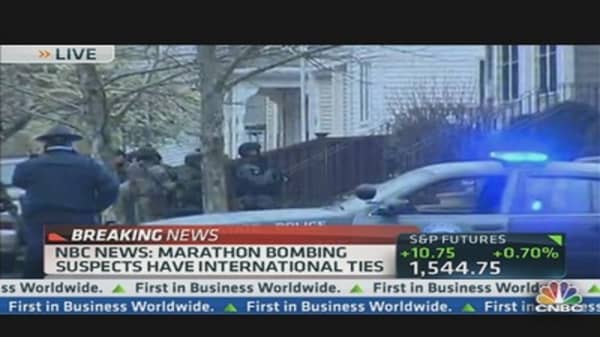Authorities said they were looking for one of the Boston Marathon bombing suspects Friday morning in the area of Watertown, Mass., after a violent confrontation overnight left the second suspect dead.
Officials said the two suspects killed an MIT police officer, injured a transit officer in a firefight, and threw explosive devices at police during their getaway. (Read More: One Boston Marathon Suspect Dead, Another at Large)
Massachusetts Gov. Deval Patrick ordered the entire city of Boston and some suburbs to stay inside while the manhunt continued.
Former law enforcement and terrorism officials analyzed the fluid situation on CNBC. Here are excerpts from those interviews on "Squawk Box" and "Squawk on the Street":


